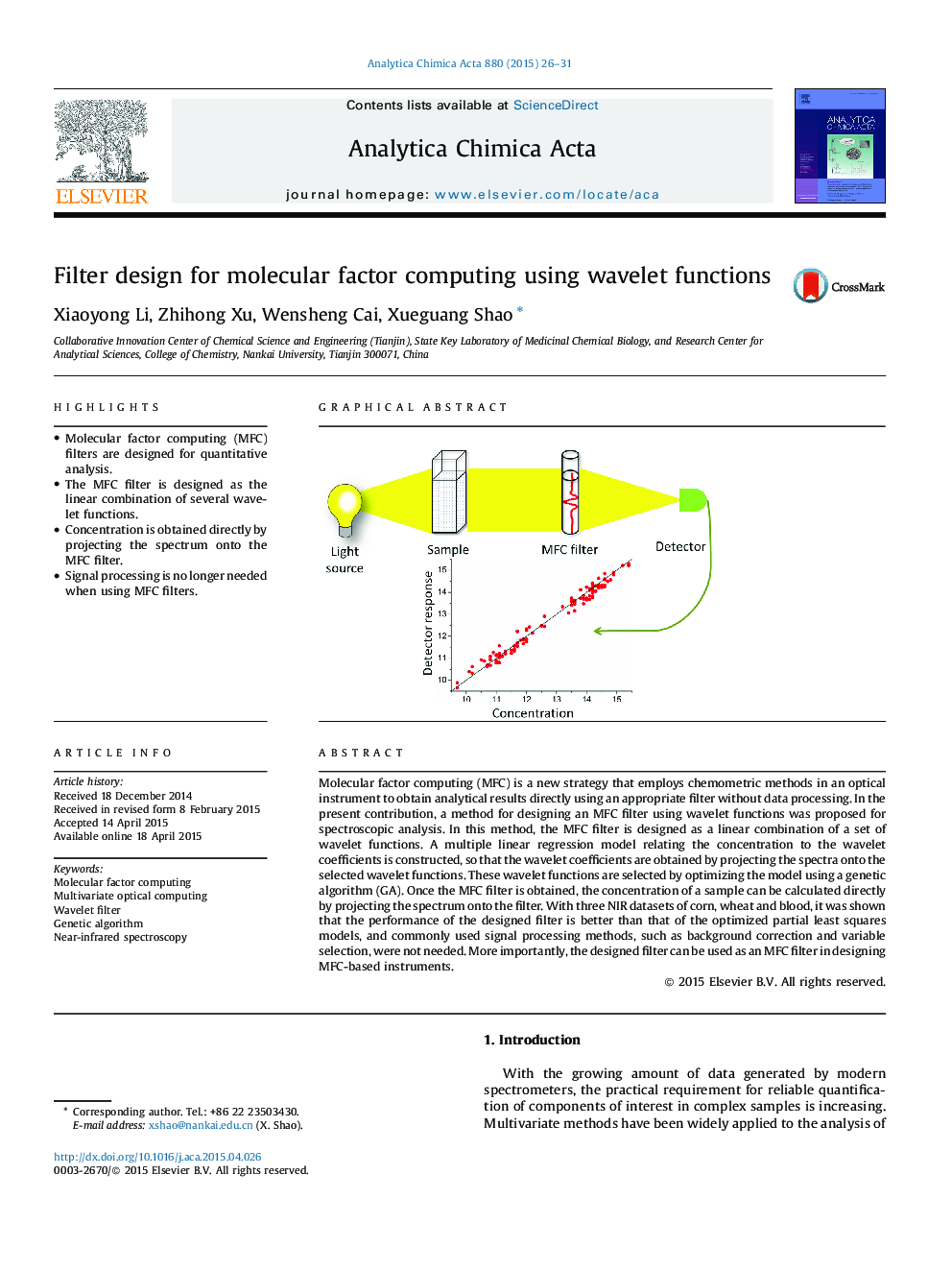| Article ID | Journal | Published Year | Pages | File Type |
|---|---|---|---|---|
| 1163285 | Analytica Chimica Acta | 2015 | 6 Pages |
•Molecular factor computing (MFC) filters are designed for quantitative analysis.•The MFC filter is designed as the linear combination of several wavelet functions.•Concentration is obtained directly by projecting the spectrum onto the MFC filter.•Signal processing is no longer needed when using MFC filters.
Molecular factor computing (MFC) is a new strategy that employs chemometric methods in an optical instrument to obtain analytical results directly using an appropriate filter without data processing. In the present contribution, a method for designing an MFC filter using wavelet functions was proposed for spectroscopic analysis. In this method, the MFC filter is designed as a linear combination of a set of wavelet functions. A multiple linear regression model relating the concentration to the wavelet coefficients is constructed, so that the wavelet coefficients are obtained by projecting the spectra onto the selected wavelet functions. These wavelet functions are selected by optimizing the model using a genetic algorithm (GA). Once the MFC filter is obtained, the concentration of a sample can be calculated directly by projecting the spectrum onto the filter. With three NIR datasets of corn, wheat and blood, it was shown that the performance of the designed filter is better than that of the optimized partial least squares models, and commonly used signal processing methods, such as background correction and variable selection, were not needed. More importantly, the designed filter can be used as an MFC filter in designing MFC-based instruments.
Graphical abstractFigure optionsDownload full-size imageDownload as PowerPoint slide
